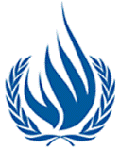 23 February 2012: The Office of the High Commissioner for Human Rights (OHCHR) recently convened a seminar to deepen the understanding of the relationship between climate change and human rights, and to address the adverse effects of climate change on the full enjoyment of human rights. The seminar aimed to track the call to respect human rights in all actions and policies related to climate change, and to build stronger cooperation between human rights and climate change experts.
23 February 2012: The Office of the High Commissioner for Human Rights (OHCHR) recently convened a seminar to deepen the understanding of the relationship between climate change and human rights, and to address the adverse effects of climate change on the full enjoyment of human rights. The seminar aimed to track the call to respect human rights in all actions and policies related to climate change, and to build stronger cooperation between human rights and climate change experts.
The seminar aimed to provide an opportunity to identify concrete actions and best practices at all levels that mitigate the negative impacts of climate change on human rights. The summary report of the event will be presented at the June 2012 session of the Council and will be sent to the 18th session of the Conference of Parties (COP 18) to the UN Framework Convention on Climate Change (UNFCCC).
Opening the seminar, which took place from 23-24 February 2012, at the Palais des Nations in Geneva, Switzerland, Amb. Laura Dupuy Lasserre, Chair of the Human Rights Council (HRC), provided an overview of the discussions on human rights and climate change by the HRC. She indicated that the HRC adopted its first resolution (7/23) on the relationship of human rights and climate change in March 2008, requesting OHCHR to conduct a detailed analytical study on the issue. The issue was introduced at the request of the Maldives, given its concerns as a small island developing State (SIDS) about the threats of climate change to the full enjoyment of human rights of people and communities. The study recognizes the direct effect of climate change not only to the environment and world economies, but also on specific human rights, inter alia, the right to life, the right to adequate food, potable water rights, the right to health, the right to adequate housing and the right to self-determination of peoples. The study also reaffirms that, despite contributing the least to greenhouse gases (GHG) emissions, developing countries and SIDS will suffer the biggest brunt of the impacts of climate change. Dupuy Lasserre also described the two further resolutions on human rights and climate change adopted by the Council in March 2009 and October 2010. She concluded by stressing that the promotion of concepts such as “green economy” should not involve new protectionism, but real opportunities to mitigate GHG emissions while bringing the human rights perspective. She underscored that climate change is the result of a development model that is proving not to be sustainable and invited all representatives to work towards sustainable development at the UN Conference on Sustainable Development (UNCSD, Rio+20).
Addressing the seminar, UN High Commissioner for Human Rights Navi Pillay stressed the human and social dimensions of climate change, and the deep impact of climate change on social justice and gender equality. She emphasized that the adverse effects of climate change are cumulative and have an indirect and gradual effect on human rights, including on agriculture and food security, as well as on biodiversity, ecosystems and water resources. She noted that climate change effects and risks are higher on those segments of the population that are vulnerable due to factors such as poverty, gender, age, minority status, migrant status and disability.
On behalf of UN Environment Programme (UNEP) Executive Director Achim Steiner, Barbara Ruis, Legal Officer at UNEP, indicated that UNEP and OHCHR are currently undertaking a joint report on human rights and the environment to better promote integrated strategies and policies for the protection of human rights and the environment.
In a statement read on her behalf, UNFCCC Executive Secretary Christiana Figueres expressed her appreciation of the work of the OHCHR and commited to being further engaged in the future.
The two-day workshop gathered experts from governments, UN agencies, academia, and NGOs. Discussions were organized in four sessions on: adverse impacts of climate change on the full enjoyment of human rights and their inter-linkages; international cooperation and respect for human rights in all climate change-related situations; forging stronger cooperation between human rights and climate change communities; and the way forward for human rights and climate change. [Remarks by Laura Dupuy Lasserre (in Spanish)] [Remarks by High Commissioner for Human Rights Navi Pillay] [Statement of the Executive Secretary, UN Framework Convention on Climate Change (UNFCCC)] [Statement of UNEP Executive Director Achim Steiner] [Human Rights Resolution A/HRC/RES/18/22] [Workshop Agenda and Concept Paper]